Report - Career Guidance
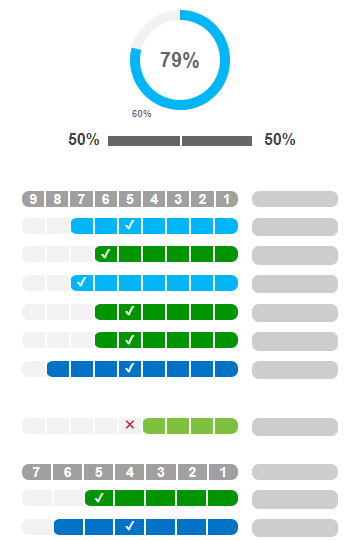
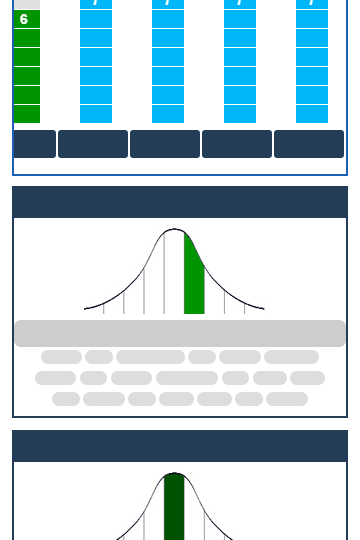
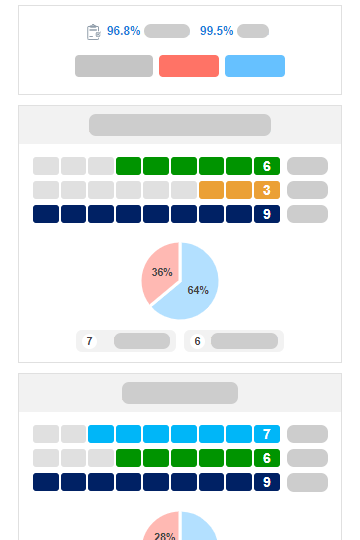

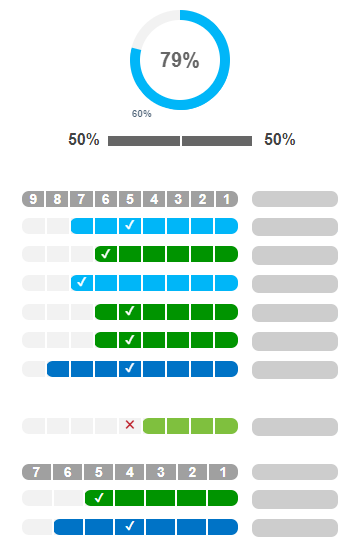
This detailed report contains vital information that could significantly affect your life.
We recommend that you take your time and review the different listings and data to realize the report's importance.
- Clicking on a specific profession will show your suitability for it in terms of skill and personality.
- Clicking on a different tab , such as "Characteristics" or "Tests" will show you more detailed information.
Good luck 😊
Your interests
47%
List of professions for the investigative field exam ❯❯
44%
List of professions for the artistic field exam ❯❯
41%
List of professions for the performative field exam ❯❯
37%
List of professions for the entrepreneurial field exam ❯❯
36%
List of professions for the social field exam ❯❯
33%
List of professions for the administrative field exam ❯❯
Preferences and Interests
The three professions that rated highest according to your questionnaire results.
Read moreThe first three professions represent your top preferences and interests. The rate you received reflects the level of your suitability for each profession according to your skills and personality scores as of today. In other words, this simulates a report that would have been presented to an employer if you had applied for such a position in the real world.
Self-selected professions
Four professions by your choice.
Read moreAt the end of the interests questionnaire phase, you will be given the option to choose 5 additional professions you wish to test your suitability for based on your skills and personality, for those who are accompanied by an occupational consultant, involving him at this stage is advised.
Logipass's recommendations
A weigh of your skills, personality type, and preferences for professions relevant to you.
Read moreLogiPass recommendations (AI) are the most suitable professions for you after weighing your skills, personality and preferences against those required in the profession, based on thousands of test takers and artificial intelligence-based research.
To receive LogiPass recommendations (AI), you must take both general aptitude tests (or set estimated scores) and a personality questionnaire.
This is the way to discover that you have a high compatibility with a profession that you may not have even known existed!
And they will always be additional and different professions from those manually selected, if any.
In any case, it is recommended to consider them as professions in which your chances of success are high, and you should consider them as well.
Please contact us at: b2c@logipass.net
Preferences and Interests
The first three professions represent your top preferences and interests. The rate you received reflects the level of your suitability for each profession according to your skills and personality scores as of today. In other words, this simulates a report that would have been presented to an employer if you had applied for such a position in the real world.
Read moreSelf-selected professions
At the end of the interests questionnaire phase, you will be given the option to choose 5 additional professions you wish to test your suitability for based on your skills and personality, for those who are accompanied by an occupational consultant, involving him at this stage is advised.
Read moreLogipass's recommendations
Read morePlease contact us at: b2c@logipass.net
Your interests
47%
List of professions for the investigative field exam ❯❯
44%
List of professions for the artistic field exam ❯❯
41%
List of professions for the performative field exam ❯❯
37%
List of professions for the entrepreneurial field exam ❯❯
36%
List of professions for the social field exam ❯❯
33%
List of professions for the administrative field exam ❯❯

Choosing professions
Professions chosen by the counselor
These professions were selected by the referral counselor to be tested for. There may be an overlap between the professions the counselor chose and the professions that came up as the top three in the interests questionnaire results.
Professions chosen by the counselor
These professions were selected by the referral counselor to be tested for. There may be an overlap between the professions the counselor chose and the professions that came up as the top three in the interests questionnaire results.
Logipass's recommendations
LogiPass recommendations (AI) are the most suitable professions for you after weighing your skills, personality and preferences against those required in the profession, based on thousands of test takers and artificial intelligence-based research.
To receive LogiPass recommendations (AI), you must take both general aptitude tests (or set estimated scores) and a personality questionnaire.
This is the way to discover that you have a high compatibility with a profession that you may not have even known existed!
And they will always be additional and different professions from those manually selected, if any.
In any case, it is recommended to consider them as professions in which your chances of success are high, and you should consider them as well.
Interests and preferences
The first three professions represent your top preferences and interests. The rate you received reflects the level of your suitability for each profession according to your skills and personality scores as of today. In other words, this simulates a report that would have been presented to an employer if you had applied for such a position in the real world.
your choices
At the end of the interests questionnaire phase, you will be given the option to choose 5 additional professions you wish to test your suitability for based on your skills and personality, for those who are accompanied by an occupational consultant, involving him at this stage is advised.
The dominant fields of each profession represent the most relevant areas of interest for the profession, meaning those that best reflect the various aspects that make up the occupation in this profession. The percentage graph reflects the prominence of the fields and the relationship between them within the profession. For example, when there are 3 prominent fields, and all have 33%, it means that the profession is a balanced mix of these three fields. When there are 3 prominent fields, but one of them has 60%, it means that this profession is prominently characterized by this field, and the other fields are less significant in it.
Your preferred areas of interest are derived from your choices in the various statements in the tendencies questionnaire, where the percentages reflect the degree of compatibility between your choices and the characteristics of each field. The higher the percentage of compatibility, the greater the match between your preferences and the characteristics of the field. For example, when a certain field has 50% compatibility, it means there is a match between your choices and the characteristics of the field in only half of the statements, and in the other half of the statements, your choices do not match the field. If the compatibility percentage is 80%, it can be understood that most of the field's characteristics reflect your tendencies.
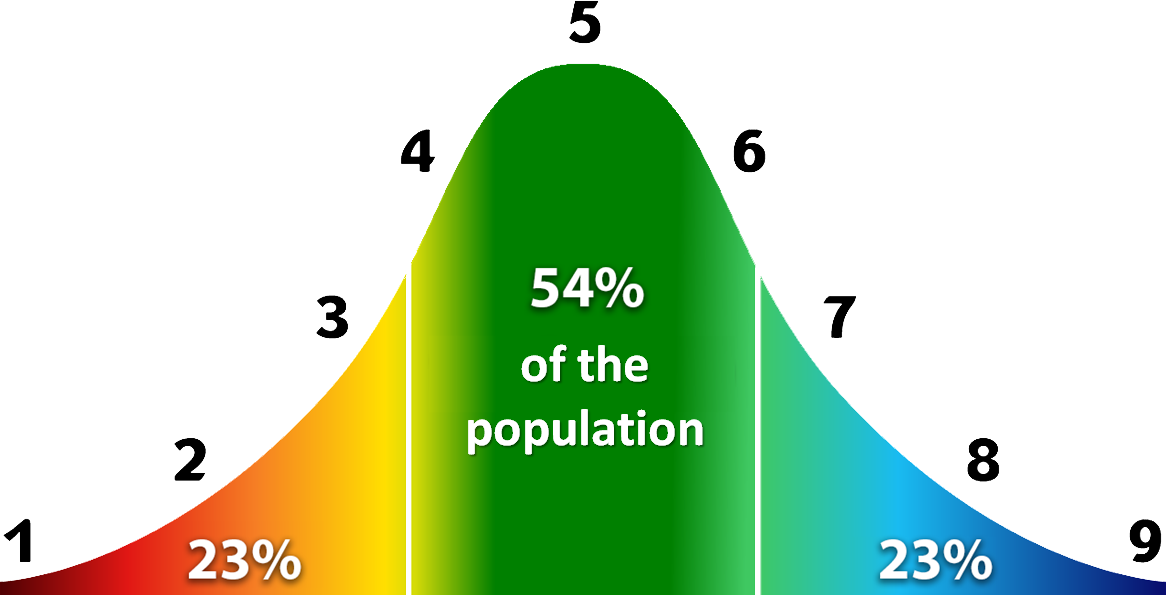
skills
(9 sections distribution)
The [9] Scale: Represents the percentile of population that will reach or surpass this grade.
This implies the majority of the population will score 4, 5 or 6 and only a fraction will score 9 or 1.
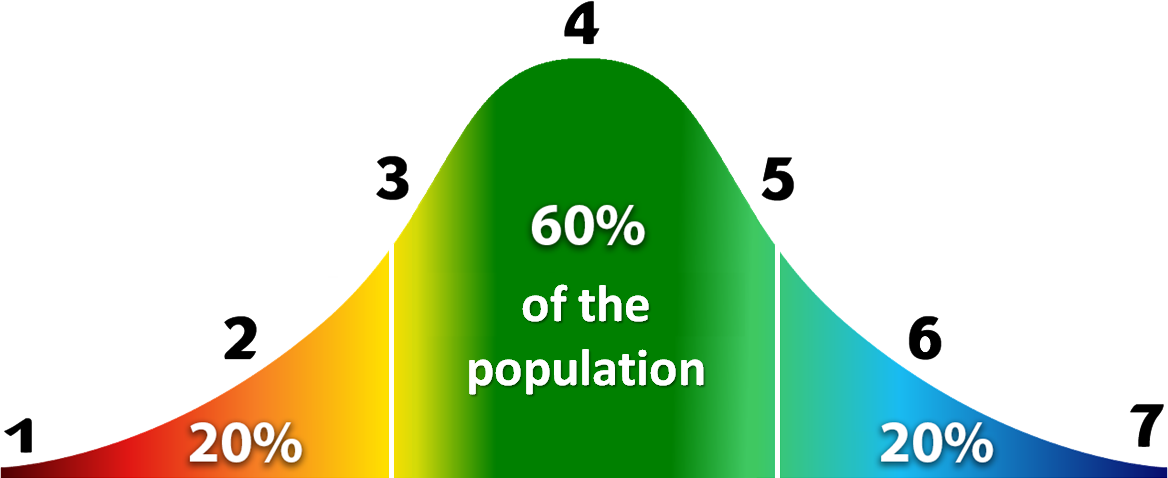
personality
(7 sections distribution)
The [7] Scale: Represents the percentile of population that will reach or surpass this grade.
This implies the majority of the population will score 3, 4 or 5 and only a fraction will score 7 or 1.
The Personality Report is based on research conducted by Logipass that observed how a person ranks himself, his views and the way others rate him.
The scores range from "very high" to "very low" and are statistically relative, i.e. "very high" is relatively high in comparison to the population and in other words reflects the fact that the majority of people rank lower in a specific metric.
 English
English
 עברית - Hebrew
עברית - Hebrew
 العربية - Arabic
العربية - Arabic
 русский - Russian
русский - Russian